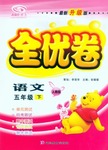题目内容
| |||||||||||||||||||||||||||||||||||||||||||||||||||||||||||||||||||||||||||||||||||||||||||||||||||||||||||||||||||||||||||||||||||||||||||||||

 ABC考王全优卷系列答案
ABC考王全优卷系列答案请先通读下面的短文,掌握其大意,然后从每小题所给的A、B、C、D四个选项中选出最佳选项,并在答题卡上将该项涂黑。(共15小题:每小题1分,满分15分)
There once was a master who went to India. In those times, we didn't have airplanes or many kinds of transportation that we do now. So the master went to India 1 . And when he got there, he saw a lot of fruit. In India they have plenty of fruit to sell, but much of it is 2 because they can't grow much 3 the water situation. So he saw one basket, a big basket of some very red, long fruit. And it was the cheapest in the shop, not expensive at all.
So he 4 and asked, "How much per kilo?" And the shopkeeper said, "Two rupees."(印度货币) Two rupees in India is 5 ; it's like dirt (尘土). So he bought a whole kilogram of the fruit and started eating it. But after he ate some of it: Oh, my God! His 6 watered, his mouth watered and burned, his eyes were burning, his head was burning and his face became 7 . As he coughed terribly , he 8 up and down, saying, "Ah! Ah! Ah!"
But he still continued to eat the fruit! Some people who were looking at him shook their heads and said, "You're crazy, man. Those are chilies(辣椒)! You can't eat so many; they're not good for you! People use them 9 a condiment(作料), but only a little bit to put into food for taste. You can't just eat them by the handful like that; they're not 10 !" So the silly master said, "No, I can't stop! I paid money for them, 11 now I'll eat them. It's my 12 !"
And you think that master was silly, right? Similarly, we sometimes do a lot of things like that. we still continue just because we've 13 money, time, effort and love into it. Just like the man who ate the chilies and felt so bad but couldn't stop because he didn't want to waste the money he'd paid.
So 14 you've lost something, let it go and move on. That's better than continuing to 15 .
| 【小题1】 |
|
| 【小题2】 |
|
| 【小题3】 |
|
| 【小题4】 |
|
| 【小题5】 |
|
| 【小题6】 |
|
| 【小题7】 |
|
| 【小题8】 |
|
| 【小题9】 |
|
| 【小题10】 |
|
| 【小题11】 |
|
| 【小题12】 |
|
| 【小题13】 |
|
| 【小题14】 |
|
| 【小题15】 |
|
